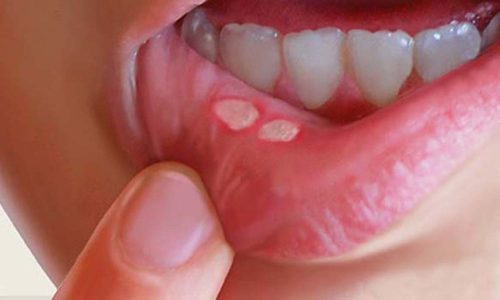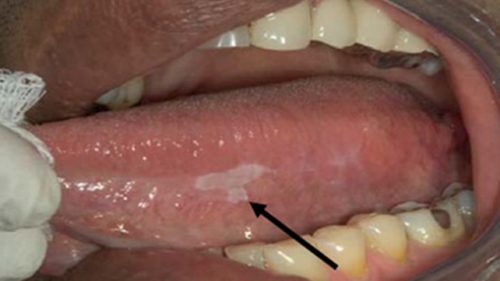[Warning: This post contains images of oral cancer, these are located at the end of this article]
Cancer research UK indicates that the incidence of mouth cancer is due to rise by 33% in the UK until 2035. The incident rate of cancer in 2035 is likely to be 20 cases per 100,000 people. At the last count in 2014 mouth cancer represented 3% of all new cancer cases in the UK.
What’s interesting to know is that mouth cancer can be one of the most treatable cancers if caught in the early stages, your dentist should be routinely performing an oral cancer screening at each of your dental health checks every six months, this greatly increases the chances of catching any oral cancer at an early stage.
Mouth cancer symptoms
Mouth cancer can appear in any part of your mouth including the floor of your mouth, roof, cheeks and gums. It can appear as a red (erythroplakia) or white patch (leukoplakia) , persistent ulcers which refused to heal or as unusual lumps and swellings.
If you have any of these symptoms which do not heal within three weeks we recommend visiting your dentist.
If in doubt, get checked out.
Causes of mouth cancer
As with most cancers, mouth cancer is indiscriminate with age and gender although it is most common in men over 40.
The major causes of mouth cancer include:
- Smoking
- Tobacco abuse, particularly chewing tobacco in any of its many forms.
- Alcohol abuse
- Tobacco and alcohol abuse greatly increase the risk of oral cancer is consumed together.
- Over exposure to sunlight around the lips.
- Human papillomavirus (HPV), typically spread through oral sex. Current research suggests this could soon rival Tobacco and alcohol is one of the main causes of mouth cancer.
mouth cancer from smoking
This is a common search term and people are often asking about mouth cancer from smoking, smoking does indeed dramatically increase the risk of mouth cancer, particularly if alcohol is consumed at the same time.
Mouth cancer survival rates
The following information is taken directly from Cancer research UK:
For men diagnosed with stage 1 and 2 mouth cancer:
- more than 90 out of 100 (more than 90%) survive their cancer for 1 year or more
- around 80 out of 100 (around 80%) survive their cancer for 3 years or more
For women diagnosed with stage 1 and 2 mouth cancer:
- around 95 out of 100 (around 95%) survive their cancer for 1 year or more
- more than 80 out of 100 (more than 80%) survive their cancer for 3 years or more
For men diagnosed with stage 3 and 4 mouth cancer:
- almost 70 out of 100 (almost 70%) survive their cancer for a year or more
- almost 50 out of 100 (almost 50%) survive their cancer for 3 years or more
For women diagnosed with stage 3 or 4 cancer:
- around 65 out of 100 (around 65%) survive their cancer for a year or more
- almost 50 out of 100 (almost 50%) survive their cancer for 3 years or more
Mouth cancer detection
Mouth cancer detection can start at home, we’ve written a 7 point Self examination guide for oral cancer, this is a free resource which can be downloaded here.
Your dentist is trained to spot a mouth cancer lump and to identify the red or white areas in your mouth which could be the early tell-tale signs of mouth cancer.
Early detection is key to the treatment of mouth cancer, if you self examine regularly, visit the dentist every six months and act on any examination then the chances of oral cancer progressing undetected are limited.
Mouth cancer treatment
Treatment will vary depending on your specific type of cancer and its location, Cancer research UK indicate that between 32 and 75% of patients diagnosed with head and neck cancers have surgery to remove the tumour as part of their primary treatment. Between 43 and 85% of patients also have radiotherapy as part of their primary care.
Oral cancer statistics
- mouth cancer is most common in men over 40
- mouth cancer incidence is rising, particularly in younger patients and women
- 7000 new cases of mouth cancer are diagnosed in the UK each year
- 2000 people in the UK die from mouth cancer each year, yet many of these deaths could be prevented with early diagnosis and treatment
- 30% of mouth cancers are caused by drinking alcohol, UK guidelines are suggested at a maximum of 14 units of alcohol a week (statistics according to Cancer research UK)
- 60% of mouth cancers are caused by smoking
- you cannot catch oral cancer however human papilloma virus (HPV) is a virus which can cause cell changes making them more likely to become cancerous in the future
Information on oral cancer – BE MOUTH AWARE

Image source: mouthcancer.org/are-you-mouthaware/
Mouth cancer images
The following images are not an exhaustive list of all types of mouth cancer, they simply show what the white and red spots could typically look like on the lips and tongue. Always visit your dentist every six months as your dentist is trained to spot the widest range of oral cancer is at an early stage.

Image source: whybemagazine.com/mouth-cancer-symptoms-risk-factors-prevention

Image source: healthline.com/health/what-does-mouth-cancer-look
Zubair Sacranie
Latest posts by Zubair Sacranie (see all)
- What To Do When Half Your Tooth Breaks Off? - 31st March, 2025
- Dental Implants in Solihull: Your Complete Guide - 28th January, 2025
- When Do Baby Teeth Fall Out and Adult Teeth Come In? - 1st December, 2024


